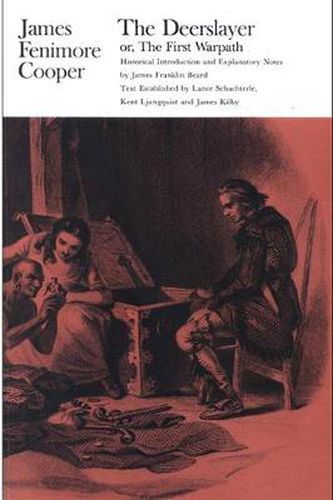Readings Newsletter
Become a Readings Member to make your shopping experience even easier.
Sign in or sign up for free!
You’re not far away from qualifying for FREE standard shipping within Australia
You’ve qualified for FREE standard shipping within Australia
The cart is loading…






Written during a nostalgic interval during Cooper’s stormy battles with the Whig Press, The Deerslayer (1841) is the last of the world-famous Leatherstocking Tales in point of composition, though first in the biographical sequence. Employing physical adventure and violence in a mythopoetic setting drawn largely from his own youthful experience, Cooper evokes the stages of Natty’s initiation as a subtly allegorical medium for instilling permanent values, values he thought should pervade the conduct of the American press and all segments of American society. According to Edmund Wilson, this book-which D. H. Lawrence called the loveliest and best of the Leatherstocking series-contains description which owes its power, like Melville’s description of the Pacific or one of Poe’s pieces on landscape gardening, to an emotional content which has charged the object and transformed it into a symbol. And the action has a reality which we recognize and accept as we read: the reality of a dream full of danger. - The Shock of Recognition
$9.00 standard shipping within Australia
FREE standard shipping within Australia for orders over $100.00
Express & International shipping calculated at checkout
Written during a nostalgic interval during Cooper’s stormy battles with the Whig Press, The Deerslayer (1841) is the last of the world-famous Leatherstocking Tales in point of composition, though first in the biographical sequence. Employing physical adventure and violence in a mythopoetic setting drawn largely from his own youthful experience, Cooper evokes the stages of Natty’s initiation as a subtly allegorical medium for instilling permanent values, values he thought should pervade the conduct of the American press and all segments of American society. According to Edmund Wilson, this book-which D. H. Lawrence called the loveliest and best of the Leatherstocking series-contains description which owes its power, like Melville’s description of the Pacific or one of Poe’s pieces on landscape gardening, to an emotional content which has charged the object and transformed it into a symbol. And the action has a reality which we recognize and accept as we read: the reality of a dream full of danger. - The Shock of Recognition